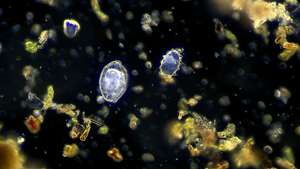
The Fascinating World of Microorganisms
In the vast tapestry of life on Earth, there exists a hidden realm that often goes unnoticed by the naked eye – the world of microorganisms. From bacteria and viruses to fungi and protozoa, these microscopic entities play an incredible role in shaping ecosystems, supporting life, and even influencing the course of human history. In this exploration of the fascinating world of microorganisms, we delve into their diversity, ecological importance, and the intriguing ways they impact our daily lives.

Diversity of Microorganisms
Microorganisms, often referred to as microbes, encompass a staggering array of life forms. Bacteria, the most ancient and abundant microorganisms, come in various shapes and sizes. Some thrive in extreme environments, from the scalding depths of hydrothermal vents to the icy expanses of polar ice caps. Archaea, a group of single-celled microorganisms, share similarities with both bacteria and eukaryotes, showcasing the remarkable diversity within the microbial world.
Viruses, while not strictly classified as living organisms, are another essential component of the microcosm. These tiny entities consist of genetic material encased in a protein coat and rely on host cells for reproduction. Viruses can infect all forms of life, from bacteria to humans, shaping the course of evolution and occasionally leading to pandemics that alter the course of human history.
Fungi, including molds and yeasts, represent another group of microorganisms. While some fungi cause diseases, others play a vital role in decomposing organic matter, recycling nutrients, and forming symbiotic relationships with plants. Protozoa, single-celled eukaryotes, exhibit diverse forms and lifestyles, ranging from free-living organisms in aquatic environments to parasites causing diseases in humans and animals.

Ecological Importance of Microorganisms
Microorganisms are the unsung heroes of Earth's ecosystems, driving essential processes that sustain life. Bacteria, for instance, play a pivotal role in the nitrogen cycle, converting atmospheric nitrogen into forms usable by plants. This process is crucial for the production of proteins and the growth of plants, forming the foundation of terrestrial food webs.
In marine environments, microscopic phytoplankton, comprised mainly of single-celled algae, contribute significantly to the production of oxygen through photosynthesis. These tiny organisms not only support marine life but also influence the global climate by regulating carbon dioxide levels.
Fungi engage in mycorrhizal associations with plant roots, enhancing nutrient uptake and promoting plant growth. Additionally, some fungi contribute to the decomposition of dead organic matter, recycling nutrients and enriching soil fertility.

Microorganisms and Human Health
While some microorganisms can cause diseases, many play a vital role in maintaining human health. The human microbiome, a diverse community of microorganisms that reside in and on our bodies, contributes to digestion, nutrient absorption, and the development of the immune system.
Probiotics, beneficial bacteria found in fermented foods like yogurt, have gained popularity for their potential to improve gut health and boost the immune system. The use of antibiotics, derived from microorganisms like bacteria and fungi, revolutionized medicine by combating bacterial infections. However, the overuse of antibiotics has led to the emergence of antibiotic-resistant strains of bacteria, highlighting the delicate balance between the benefits and risks associated with microorganisms.

Biotechnological Applications
Microorganisms have become invaluable tools in various biotechnological applications. From the production of antibiotics and vaccines to the fermentation of food and beverages, microorganisms are harnessed for their diverse capabilities. Genetic engineering techniques enable the modification of microorganisms to produce biofuels, enzymes, and pharmaceuticals, opening new frontiers in sustainable technologies.
Final Words
The world of microorganisms is a captivating realm teeming with diversity and significance. From shaping ecosystems to influencing human health and driving technological advancements, these microscopic entities hold the keys to unlocking a deeper understanding of life on Earth.
As we continue to explore and harness the potential of microorganisms, we embark on a journey that transcends the limits of our perception, revealing the intricate and awe-inspiring tapestry of the microbial world.



